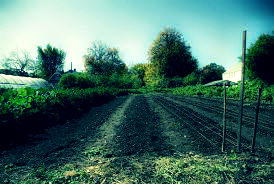Plant Biotic Interactions
The Plant Biotic Interactions (PBI) program supports research on the processes that mediate beneficial and antagonistic interactions between plants and their viral, bacterial, oomycete, fungal, plant, and invertebrate symbionts, pathogens and pests.
This joint NSF-NIFA program supports projects focused on current and emerging model and non-model systems, and agriculturally relevant plants.
The program’s scope extends from fundamental mechanisms to translational efforts, with the latter seeking to put into agricultural practice insights gained from basic research on the mechanisms that govern plant biotic interactions.
Projects must be strongly justified in terms of fundamental biological processes and/or relevance to agriculture and may be purely fundamental or applied, or include aspects of both perspectives.
All types of symbiosis are appropriate, including commensalism, mutualism, parasitism, and host-pathogen interactions.
Research may focus on the biology of the plant host, its pathogens, pests or symbionts, interactions among these, or on the function of plant-associated microbiomes.
The program welcomes proposals on the dynamics of initiation, transmission, maintenance and outcome of these complex associations, includingstudies of metabolic interactions, immune recognition and signaling, host-symbiont regulation, reciprocal responses among interacting species and mechanisms associated with self/non-self recognition such as those in pollen-pistil interactions.
Explanatory frameworks shouldinclude molecular, genomic, metabolic, cellular, network and organismal processes, with projects guided by hypothesis and/or discovery driven experimental approaches.
Strictly ecological projects that do not address underlying mechanisms are not appropriate for this program.
Quantitative modeling in concert with experimental work is encouraged.
Overall, the program seeks to support research that will deepen our understanding of the fundamental processes that mediate interactions between plants and the organisms with which they intimately associate and advance the application of that knowledge to benefit agriculture.
Note that PBI does not require submission of preliminary proposals.
This joint NSF-NIFA program supports projects focused on current and emerging model and non-model systems, and agriculturally relevant plants.
The program’s scope extends from fundamental mechanisms to translational efforts, with the latter seeking to put into agricultural practice insights gained from basic research on the mechanisms that govern plant biotic interactions.
Projects must be strongly justified in terms of fundamental biological processes and/or relevance to agriculture and may be purely fundamental or applied, or include aspects of both perspectives.
All types of symbiosis are appropriate, including commensalism, mutualism, parasitism, and host-pathogen interactions.
Research may focus on the biology of the plant host, its pathogens, pests or symbionts, interactions among these, or on the function of plant-associated microbiomes.
The program welcomes proposals on the dynamics of initiation, transmission, maintenance and outcome of these complex associations, includingstudies of metabolic interactions, immune recognition and signaling, host-symbiont regulation, reciprocal responses among interacting species and mechanisms associated with self/non-self recognition such as those in pollen-pistil interactions.
Explanatory frameworks shouldinclude molecular, genomic, metabolic, cellular, network and organismal processes, with projects guided by hypothesis and/or discovery driven experimental approaches.
Strictly ecological projects that do not address underlying mechanisms are not appropriate for this program.
Quantitative modeling in concert with experimental work is encouraged.
Overall, the program seeks to support research that will deepen our understanding of the fundamental processes that mediate interactions between plants and the organisms with which they intimately associate and advance the application of that knowledge to benefit agriculture.
Note that PBI does not require submission of preliminary proposals.
Related Programs
National Science Foundation
Agriculture and Food Research Initiative (AFRI)
Department of AgricultureNational Science Foundation
Obtain Full Opportunity Text:
NSF Publication 17-551
Additional Information of Eligibility:
*Who May Submit Proposals: Proposals may only be submitted by the following: -Non-profit, non-academic organizations: Independent museums, observatories, research labs, professional societies and similar organizations in the U. S. associated with educational or research activities.
-Universities and Colleges - Universities and two- and four-year colleges (including community colleges) accredited in, and having a campus located in, the US acting on behalf of their faculty members.
Such organizations also are referred to as academic institutions.
- USDA/NIFA: Eligible applicants include: (1) State agricultural experiment stations; (2) colleges and universities (including junior colleges offering associate degrees or higher); (3) university research foundations; (4) other research institutions and organizations; (5) Federal agencies, (6) national laboratories; (7) private organizations or corporations; (8) individuals who are U. S. citizens, nationals, or permanent residents; and (9) any group consisting of 2 or more entities identified in (1) through (8).
Eligible institutions do not include foreign and international organizations.
Full Opportunity Web Address:
http://www.nsf.gov/publications/pub_summ.jsp?ods_key=nsf17551
Contact:
NSF grants.gov supportgrantsgovsupport@nsf.gov
Agency Email Description:
If you have any problems linking to this funding announcement, please contact
Agency Email:
grantsgovsupport@nsf.gov
Date Posted:
2017-04-15
Application Due Date:
2017-09-01
Archive Date:
2017-10-01
Social Entrepreneurship
Spotlight
When it Comes to Social Enterprises, Failure is the Best Platform for Innovation

In the world of social enterprises, failure is a cringe-worthy moment nobody wants to talk about. But, social entrepreneurs can benefit from their failures.

